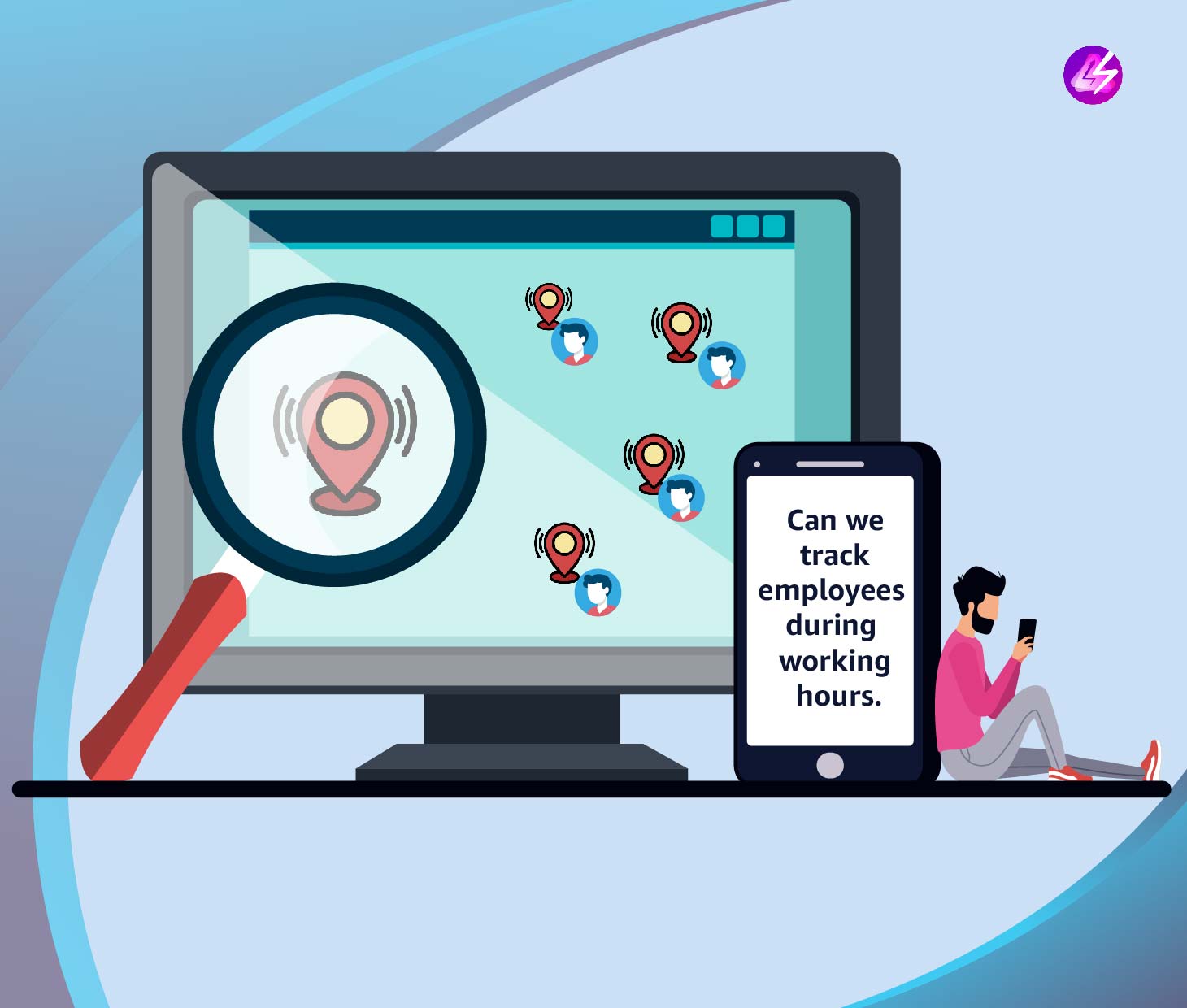
Should you track your employees during working hours?
The continued extent of Covid-19 is driving millions of people to work from home. As many workers and organisations are facing a new reality, employers have an issue regarding the productivity of their employees. Employers assume that while you are at home, you are in the comfort of the house and do not want to work. However, you should take things with caution as your boss sees you.
About half of the companies use some of the other techniques to monitor their employees. Some use social media monitoring, biometric assessment, tracking, or anything to monitor employees.
According to the latest surveys, many large corporations use some tracking techniques to monitor their employees’ performance. As Covid-19 started in many countries, unexpectedly, work-from-home policies are booming. The productivity of these employees became the issue of many managers and organisations. The managers also started realising that they could work from anywhere and still get good results. However, most of the companies do not have any experience working from home. What does a company do to check the productivity of its employees?
The tracking of their employees helped a lot of companies to increase productivity and boost sales. The tracking still raises ethical concerns. So, let’s discuss that it is possible to track your employees during working hours.
Why do companies track their employees’?
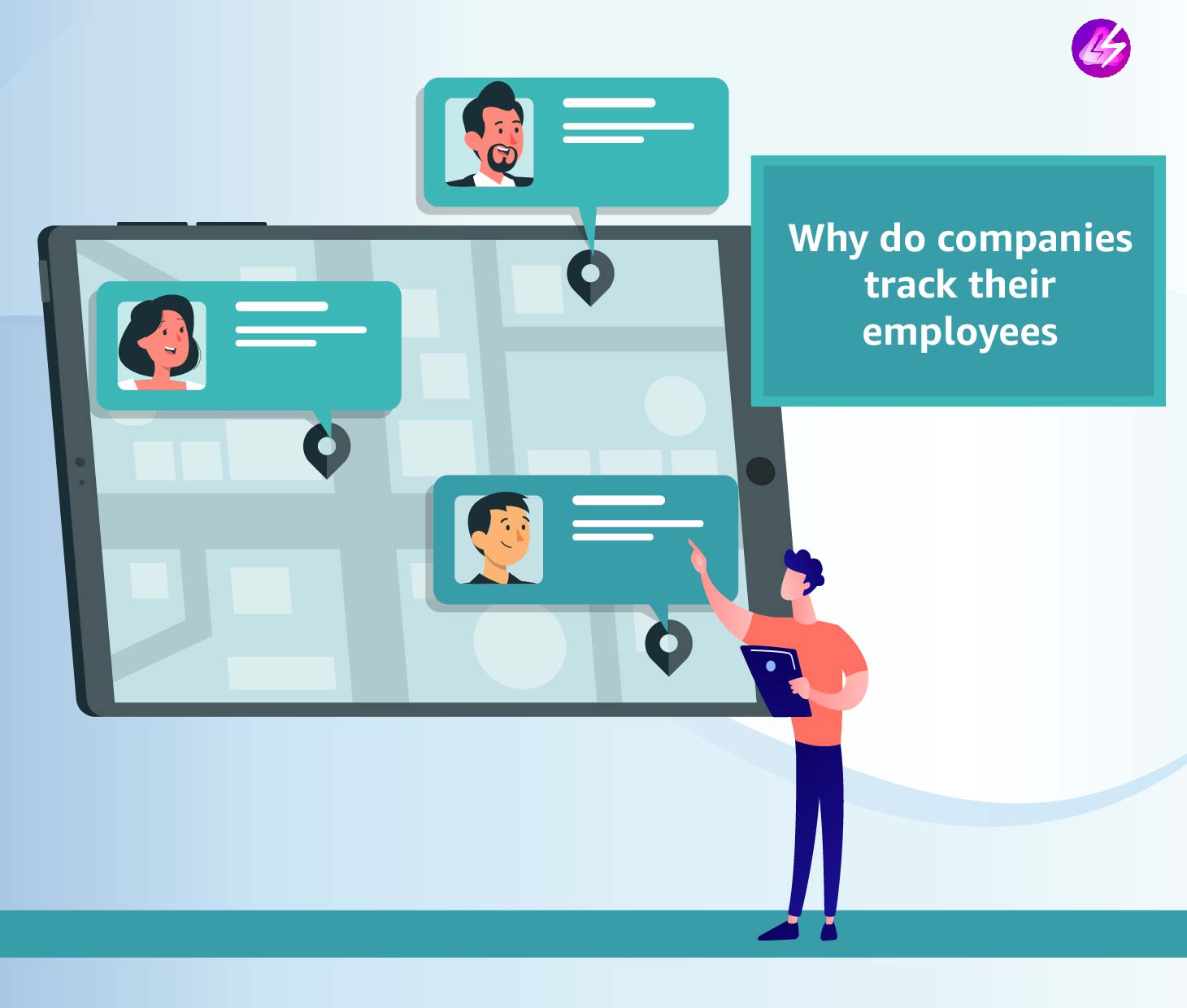
The company usually tracks its employees due to several reasons.
- One of the reasons to track employees is security. It means that if organisations give their employees the phone and access company email in that for work. However, suppose your phone is lost, and you cannot access your company email to block or for anything. Then, an organisation can immediately stop the company email.
- The second reason is productivity. Whether big or small, any company wants their employees to use their time to boost their organisation. It is essential to boost the productivity of the organisation. Tracking your employee can improve focus and also increase productivity. It is natural to lose focus, but the organisation can help in increasing focus when they follow their employees.
- Tracking your employees can also give a fair idea of how much time employees are working efficiently. It means that employers can measure how much time they are wasting in one day. For instance- employees get paid for the work they do in 8-9 hours. However, they waste their time, and this result in losing resources and money. According to the case study, it revealed how employees use their working hours in their personal use.
According to some statistics, many small organisations lost almost 40% of their productivity because employees use their working hours for personal use. This productivity can cause massive losses to the organisation.
Organisations use some functional employee monitoring software to track and monitor their employees in an effortless way. They watch computer idle time with personal internet use and software use. If workers know that their organisation is tracking their idle time, they will try to refrain from inappropriate work.
Tracking your employees do not only mean when they are working and when they are not. TeamSpoor can also track and monitor employees’ performance. They can synchronise your work even in different time zones.
How company tracks their employees?
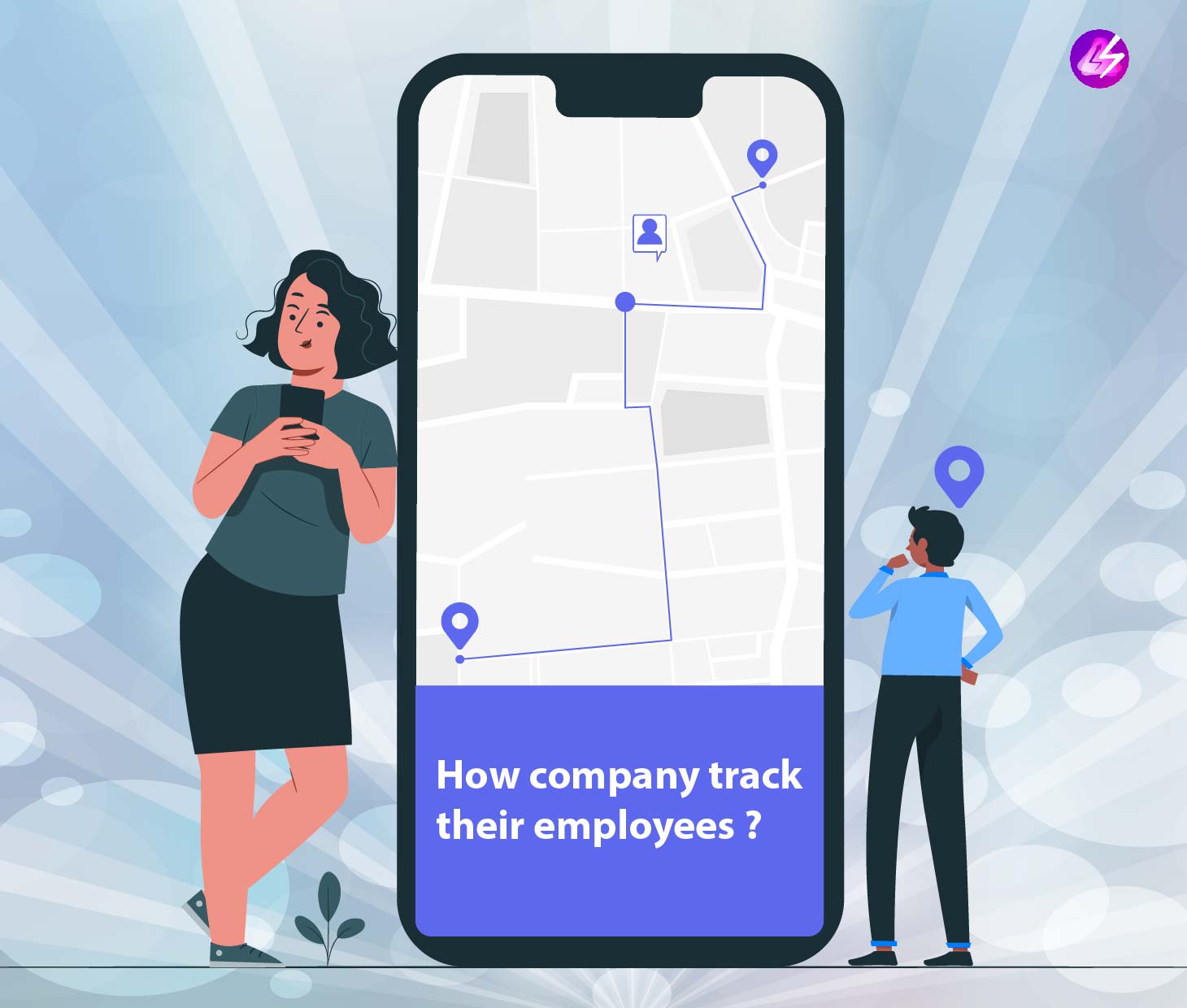
Sales are the central part of every organisation. Sales can help in increasing profits and increase awareness. For every organisation to boost sales, it is essential to increase sales, and for that sales department should work correctly. It is one of the reasons that executives try to track and monitor their employees. Here is how they try to follow their employees.
In most cases, employees use computers for their work. So, it is easy to monitor and track your employees and check what they are working on computers during working hours. Here are some ways you can track your employees.
- Automatic tracking of employees – Organisation can automatically track their employees’ as and when they login to their work accounts. Organisations can track which tabs they are using, what they are doing during their working hours, and how much time they are working. For this, an employer should choose advanced employee tracking software like TeamSpoor.
- Screenshots and video recording of employees’ desktops – Some employee tracking software records screenshots and videos of employees’ desktops without notifying them.
- Real-time remote screen viewing- Some employers can track and monitor employees in real-time. Tech teams usually make this software tool, but other groups can also use this software.
- Self-monitoring modules- Employees can track their work and check their productivity. After knowing their productivity, employees can organise their work accordingly.
- Reading emails and calendars-Employers are tracking their employees’ work emails and calendars. This software is helping them to track where their employees are and for how long they are meeting with others.
There is various other tracking software, and organisations are using those to track their employees’ performance.
Is employee tracking ethical and legal?
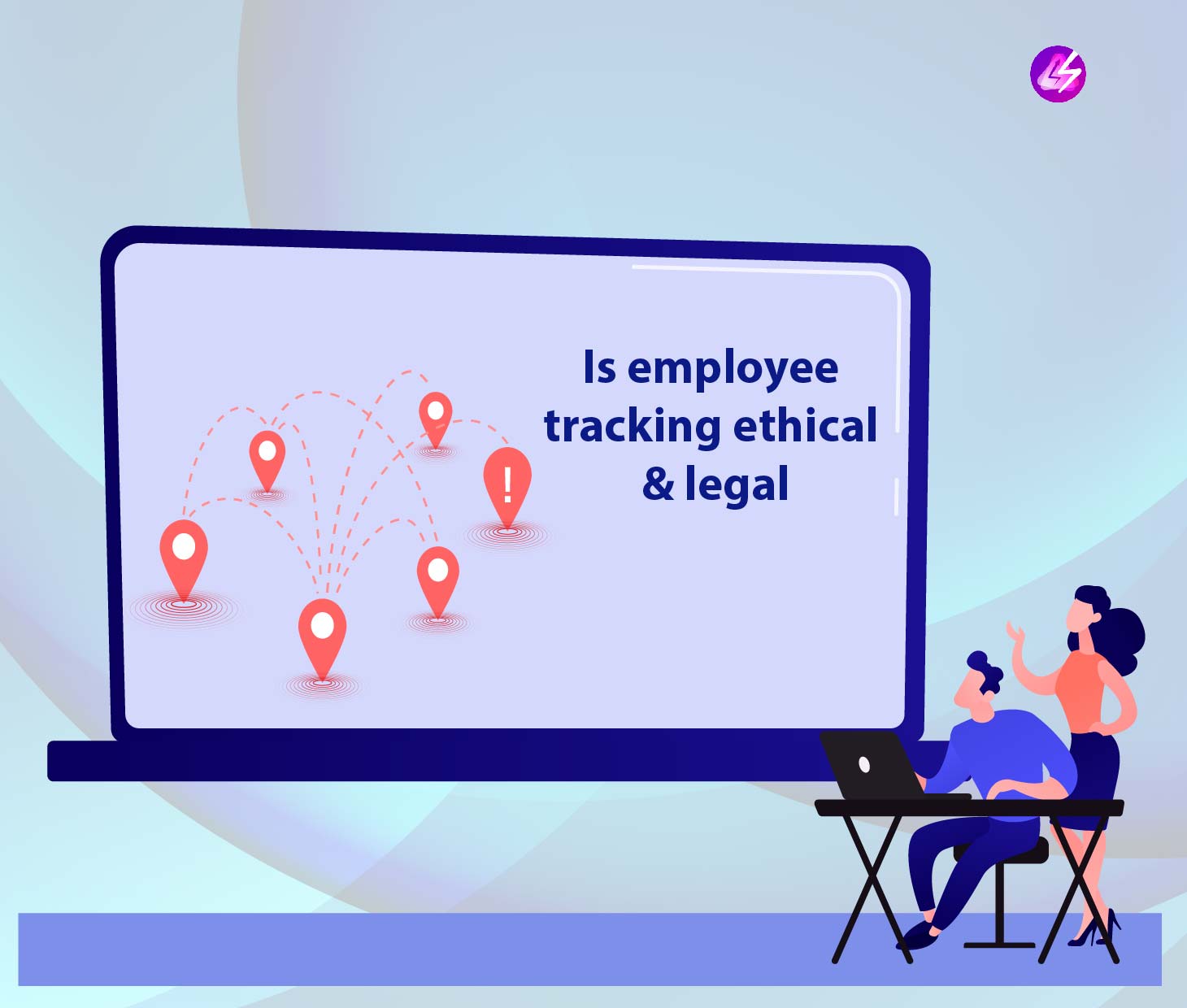
The answer is uncertain. The laws regarding employee tracking and monitoring in the workplace vary in different countries and states in the countries. For example, it is legal to track and monitor employees in common areas of workplaces. It will help in tracking and monitoring employees’ workplaces.
It is legal in some areas of the world to track company-issued property. For example, employers can track emails if a company issued any computer or mobile phone and work from the company’s server. They can even track emails that are of personal use.
Some employee tracking software and ways are ethical. However, some practices are unethical. Here are some lists where employee tracking is unethical and illegal.
Some unethical and illegal ways to track employees

- Monitoring your employees in secret- The number one unethical and legal monitoring process is monitoring employees in secret. It means that employees do not have the idea that the organisation is watching them. This practice is only permitted when the organisation has suspicion of their employee for any theft or any other malpractice. However, if the company is only keeping an eye on their employee, this practice is illegal.
You can have employee monitoring software, and if possible, you can make a monitoring policy where you can ask for employee consent. This monitoring policy can explain what you will be monitoring, which data you will monitor, and how you will store it. Transparency between employees and the company is essential to have a healthy environment.
- Monitoring employees outside working hours- Monitoring after working hours has become the most significant trust issue between the employees and employers. It is not uncommon to use office laptops for personal use. When employees use these laptops for personal use, employers sometimes come across private and sensitive information. It can now be illegal.
It is better to avoid the above situation. To prevent the case, you request your employees to forbid the use of office laptops. There can also be another way to ask your employees to stop the tracker while they are on break or vacation. It will put employees and employers both in a comfortable situation. The trust between the two is essential to have a good working environment. However, the states and countries have different laws. For example, if an employee uses company-issued phones, do organisations have the authority to check the phone’s data?
Another example is that if any employee uses any conveyance after 5:00 or working hours for personal use, then do organisers have the authority to track where their employees are using conveyance?
- Bring your device- Some organisation asks their employees to bring a personal device. They do not provide office devices. In many cases, they also do not offer any conveyance, and the employers use their transportation and devices for work. It becomes a trust issue because companies start tracking your devices.
The organisation asks employees to download MDMS to track the data. MDMS can randomly collect the data using screenshots, so if MDMS gives a random picture of banking account details or any strict private information. Is it ethical or legal?
The answer is always no. You cannot force your employees to download MDMS. It is better to tell them when you the time when you are tracking their employees. You should also consider independent monitoring contractors. They are independent and do their work without any pressure. So, it is obvious not to track them to avoid any legal concerns.
- Collecting personal data through employee monitoring software- Many organisations use various screenshots to track their employees. The screenshots are random, and generally, employees do not have any idea. Some employee monitoring software even take screenshots or record videos of keystrokes. Although, tracking and monitoring your employees can improve and boost productivity. However, taking them at the wrong time like bank account details and browsing social media personal details.
If still, you want to use screenshots to track your employees, then it is better to limit the screenshot to work-related applications and websites. It is even better not to use screenshots.
- Not using the collected data in correct way-
You use tracking software for managing data and monitoring your employees. Tracking your employees and collecting the data is one thing, and using those data is another. Suppose you are collecting those data for the sake of collecting and not using those data for the benefit of the business. It is a total waste of time.
If you want something from the tracking and monitoring of the employees, then you should have a proper plan for this. The appropriate program includes what you are using, which data you can use, and which data can help to boost productivity. For example, suppose the purpose of collecting information is increasing the productivity of the employees, then you should use tracking data daily. You can improve and boost productivity.
- Employees’ view on monitoring- It is necessary to ask for opinions from your employees. Although, it is pretty clear that most employees do not have any concerns regarding tracking and monitoring. However, some of the employees do have problems. One best way to improve transparency is to tell your employees why you are tracking and how you will track these data.
What do employees want from employers regarding tracking?
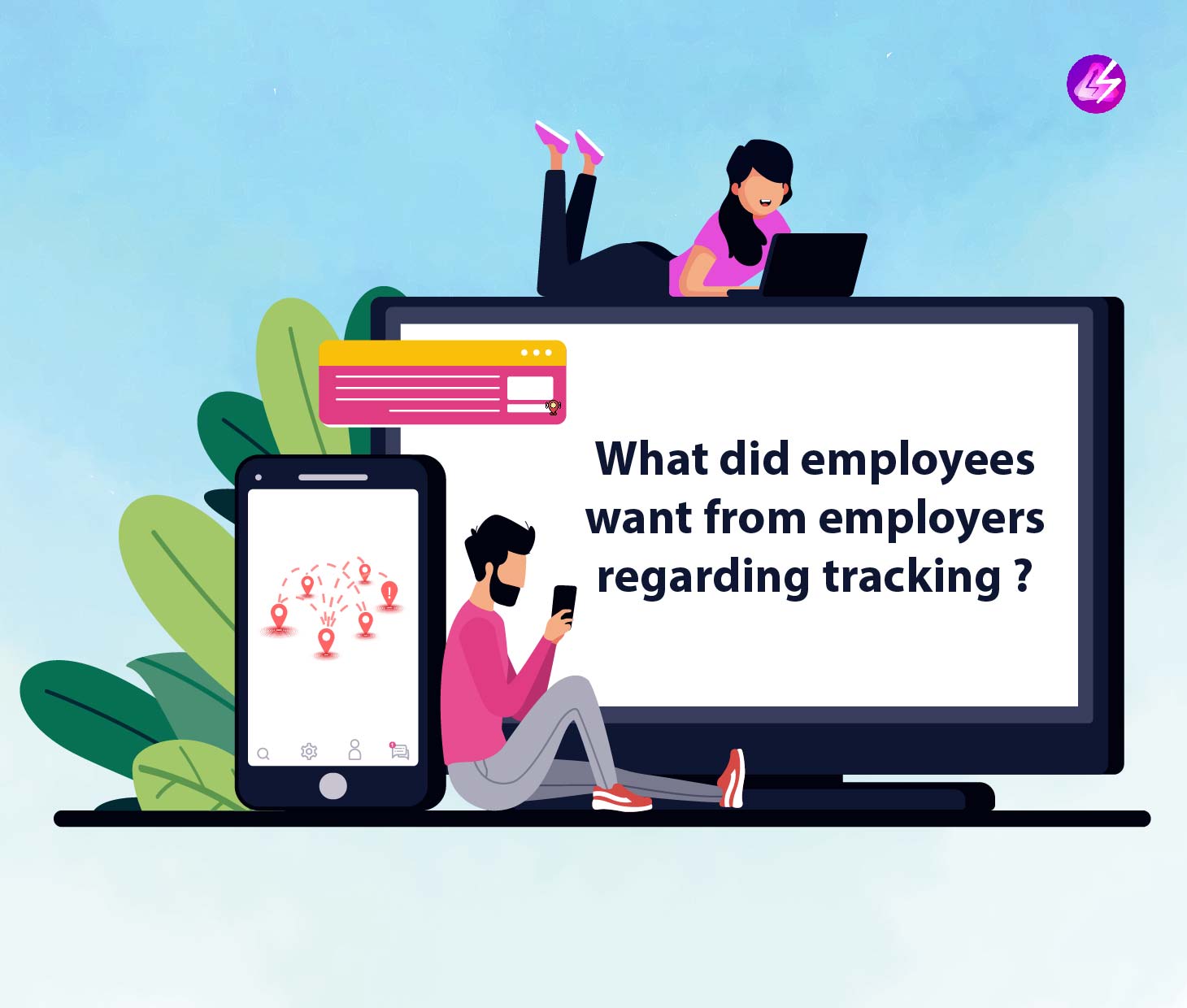
According to various surveys, it looks that employees also expect many things from employers. Here are the list employees want from employers regarding tracking.
- Employees want transparency- Employees wish for clarity. The latest research and surveys show that employees want to understand what tracking is all about and how they are under tracking. They feel comfortable about monitoring and tracking if they know about it.
A recent survey shows that 30% of employees were comfortable in employer monitoring in emails in 2018, while only 10% were comfortable in 2015. When an employer explains the whole concept of tracking and monitoring, the research shows more than 50% of employees are satisfied.
- Trust and accountability- The research also shows that employees want to trust and responsibility from the organisation. The organisation beyond tracking should also trust its employees. If the work completes within time limits, then employers should trust their employees.
Monitoring Governance
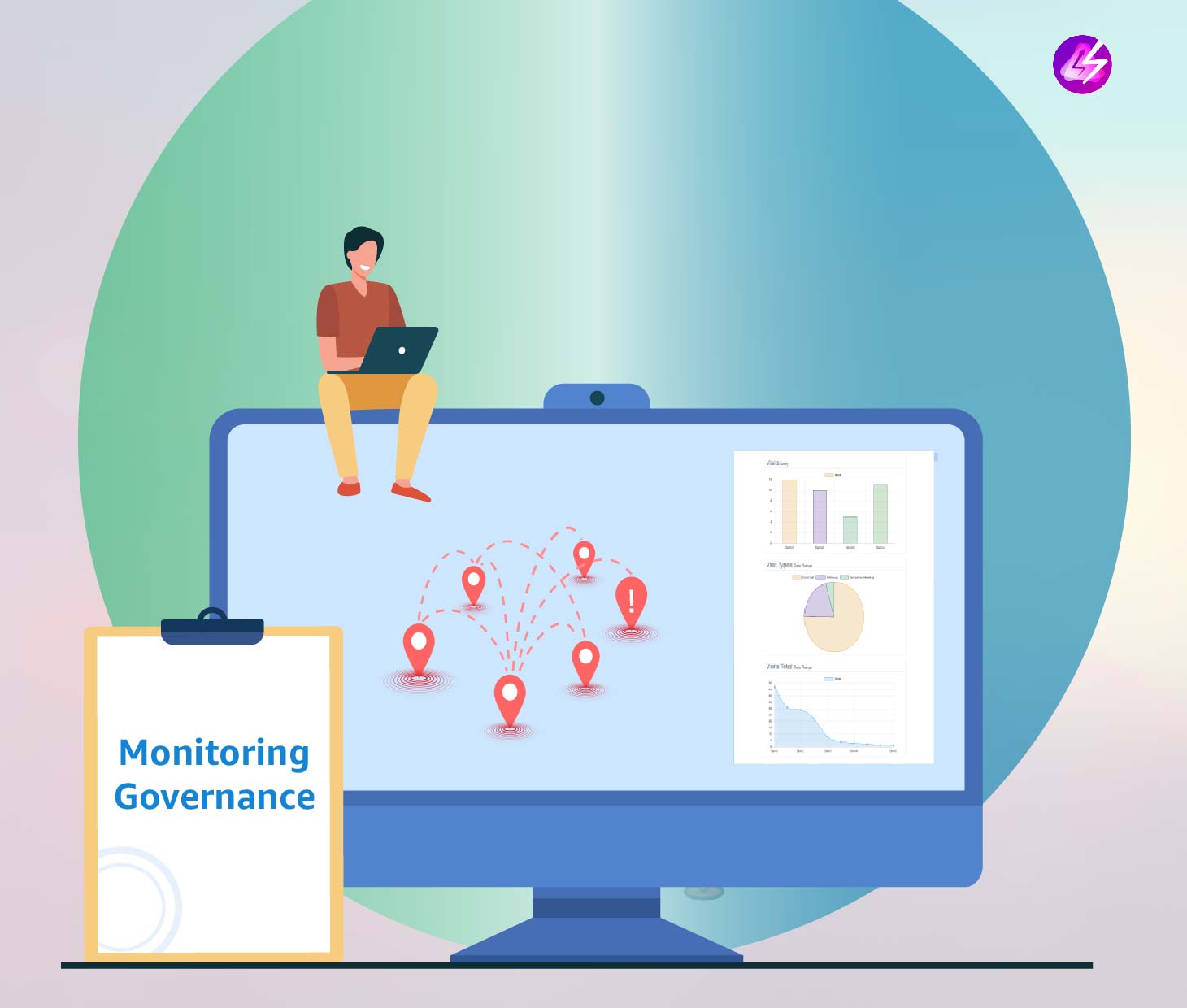
There are specific challenges and issues while you are tracking their employees. Eventually, the HR and other seniors in the organisation have to work according to the company’s point of view. The challenges require to discuss, and proper governance is essential for monitoring. According to the current technology and challenges, the company should focus on certain things while monitoring. It includes
- Acknowledge how much comfortable your organisation is- It is essential to acknowledge how pleased your organisation is or is not in adopting the new technology. You should acknowledge how your general counsel thinks about experimenting with new ideas and taking insights from the employees.
- Transparency- The best and foremost thing is to have transparency with employees. It is not good if you keep things secret. Suppose your employees get to know from different sources then they will react negatively and think oppositely.
- Communicate- Communication is the key between the employees and employer. Suppose you collect the data, then explain how this data is helping in boosting productivity.
A company will make mistakes in this path, but the organisation or employer will soon learn everything. However, employers will quickly understand a lot about collecting, storing and using data responsibly.



